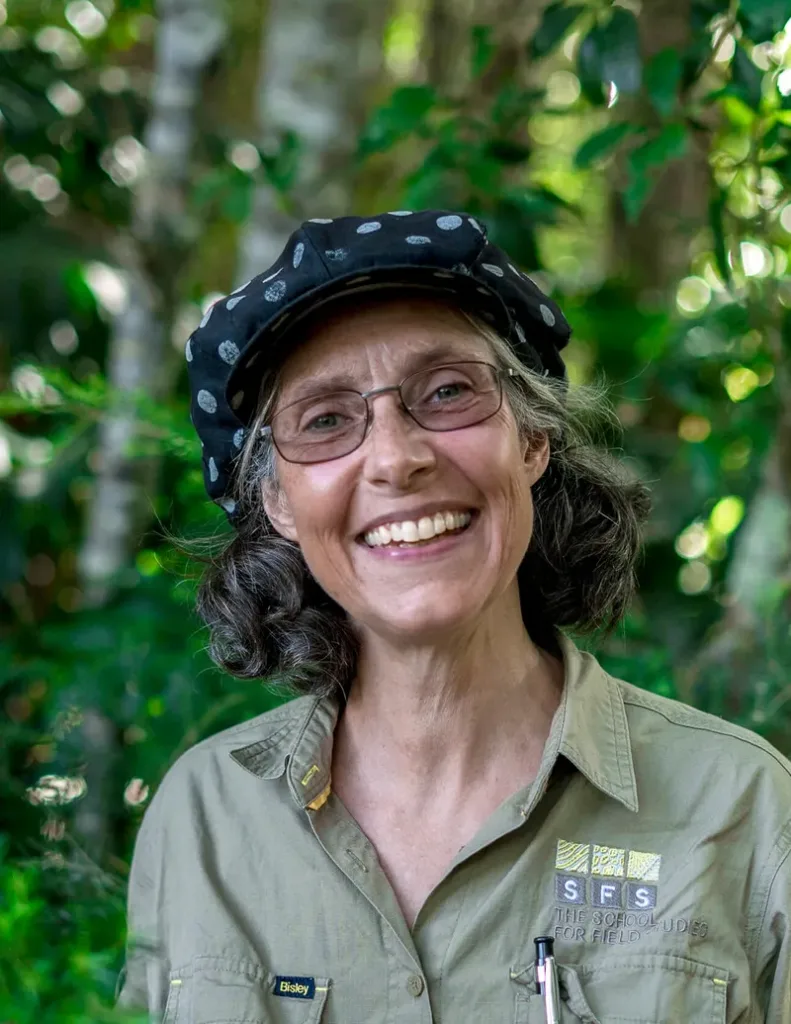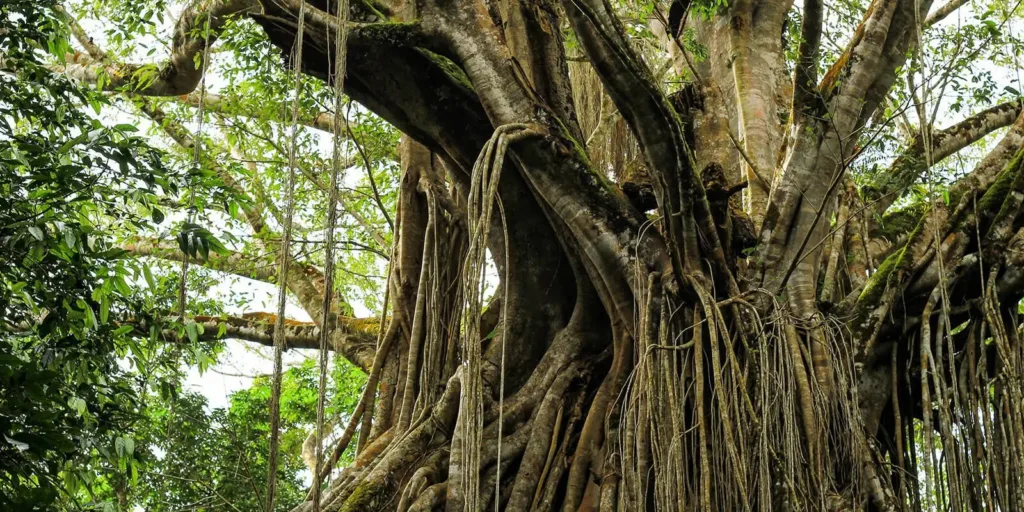
By: Sigrid Heise-Pavlov, PhD
SFS Presents Distinguished Student Researcher Awards to Six Alumni
The School for Field Studies (SFS) presented its Distinguished Student Researcher Award today to six of its alumni in recognition of the exceptional environmental research they conducted while studying abroad during the spring and fall semesters of 2014. The award was presented to: Mary Fisher of Cornell University; Hannah Steinberg of Wesleyan University; Kelsey Davison of Salem State University; Erin Freeman of Boston University; Sean Reilly of Santa Clara University; and Matthew Tietbohl of Wake Forest University.
Each year, The School for Field Studies honors its most exceptional students with Distinguished Student Researcher Awards for their important contributions in environmental research. SFS semester students engage in undergraduate research guided by SFS faculty on projects related to each Center’s Five-Year Research Plan (5YRP). Outcomes of these Directed Research (DR) projects provide information and recommendations to community members and other stakeholders on critical, local environmental issues.
Students are nominated by SFS faculty based on their demonstrated sophistication in research design, field work, reporting, and their contribution to the Center’s 5YRP. The SFS award also recognizes the student’s leadership exhibited while working with a team of student and faculty researchers in the field.
SFS Dean of Academic Programs Dr. Mark Seifert and Assistant Dean Dr. Meghan Graham MacLean presented the award this spring with a nomination from the students’ DR advisors.
Mary Fisher, Cornell University and SFS Center for Marine Resource Studies, Turks & Caicos Islands (TCI), Spring 2014
Fisher’s research project, Fisher’s Ecological Knowledge in a Data-Deficient Fishery: Using FEK to Explore and Quantify Long Term Changes in the Queen Conch (Strombus gigas) and Caribbean Spiny Lobster (Panulirus argus) Fisheries of South Caicos, the Turks and Caicos Islands, significantly contributes to the SFS Center for Marine Resource Studies’ ongoing Five-Year Research Plan by addressing one of the key research questions: “What is the present status of commercially and ecologically important marine organism stocks?” Fisher’s research suggests that some inshore fisheries may be more heavily exploited than previously thought, which has profound implications for TCI fisheries management.
Fisher’s SFS DR advisor Dr. Edd Hind says that her work is “the first semi-quantitative fishers’ knowledge study of its kind in a developing world context and has a large chance of making an impact.”
Hannah Steinberg, Wesleyan University and SFS Center for Sustainable Development Studies, Costa Rica, Spring 2014
Steinberg’s research project, Effect of artificial feeders on hummingbird diversity and level of interactions in Monteverde, Costa Rica, significantly contributes to the SFS Center for Sustainable Development Studies’ ongoing Five-Year Research Plan, and her results, says DR advisor Dr. Gerardo Avalos, “are clearly relevant to our clients, The Monteverde Cloud Forest Reserve and Selvatura Park.”
While the use of artificial hummingbird feeders is a popular method to attract the birds for human enjoyment and to draw visitors to ecotourist destinations, Steinberg’s research illustrated a direct impact of the use of feeders on hummingbird diversity.
Kelsey Davison, Salem State University and SFS Center for Mekong Studies, Cambodia, Fall 2014
Davison’s research project, The Efficacy of Fisheries Resources and Conservation Management on the Tonle Sap: Impacts of Fishing Reform Changes in Kompong Khleang, significantly contributes to the development of the SFS Center for Mekong Studies’ research agenda. Davison’s research incorporated participatory mapping and GIS to gather different stakeholders’ perceptions of the boundaries of the conservation zone, and analyzed where areas of conflict and confusion existed amongst stakeholders.
Dr. Chouly Ou, Davison’s SFS DR advisor, says that her work “addresses key current issues in ongoing fishery reforms in Cambodia. In addition, her recommendations are directly relevant to improving the work of a local NGO, Fisheries Action Coalition Team, and the Cambodian government’s Fisheries Administration.”
Erin Freeman, Boston University and SFS Center for Wildlife Management Studies, Tanzania, Fall 2014
Freeman’s research project, Tourist Attitudes towards Maasai Cultural Bomas in Ngorongoro Conservation Area, Tanzania, significantly contributes to the SFS Center for Wildlife Management Studies’ ongoing Five-Year Research Plan by addressing the socioeconomic dimensions of wildlife conservation, including the role of tourism in local livelihoods and the economic and cultural values of natural habitats. Freeman’s research found that increasing attraction interactivity and diversity and reducing commercialism would increase tourist satisfaction, affecting the success of the area’s cultural tourism.
Freeman’s SFS DR advisor John Mwamhanga says that the recommendations based on her research have the potential to “increase tourists’ satisfactions and in long-term increase the number of visitors to boma, and hence earn more revenue that will significantly contribute to the improvements of the local Maasai livelihood.”
Sean Reilly, Santa Clara University and SFS Center for Rainforest Studies, Australia, Fall 2014
Reilly’s research project, Keeping it real: Preserving authenticity in Indigenous cultural tourism, significantly contributes to the SFS Center for Rainforest Studies’ ongoing Five-Year Research Plan by addressing the sustainability and resilience of the region’s ecological and human communities. Reilly’s research found that indigenous tourism has the potential to strengthen Aboriginal communities and help them to overcome welfare dependency, but must be implemented intelligently to prevent cultural modification.
Reilly’s SFS DR advisor Dr. Justus Kithiia says that his presentation “demonstrated a high level ability to synthesize and communicate research findings to different audiences,” including Aboriginal tourism operators who can use the information to strike a balance between preserving cultural integrity and maintaining economic stability.
Matthew Tietbohl, Wake Forest University and SFS Center for Marine Resource Studies, Turks & Caicos Islands (TCI), Fall 2014
Tietbohl’s research project, An extra eye in the sky: Comparison of unmanned aerial vehicle (UAV) and gillnet surveys of juvenile lemon shark (Negaprion brevirostris) populations on South Caicos, Turks and Caicos Islands – potential use of UAVs as a supplementary survey method, significantly contributes to the SFS Center for Marine Resource Studies’ ongoing Five-Year Research Plan by addressing the status of important marine organisms and their use of South Caicos marine habitats.
DR advisor Dr. Aaron Henderson says that Tietbohl “took ownership of his research and his goal was to produce robust and meaningful results.” Tietbohl’s research presented an assessment on the potential of unmanned aerial vehicles (UAV) to supplement gillnet capture studies for monitoring the population of juvenile lemon sharks in near shore habitats.


